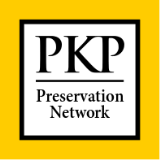Implementation of the G*Gold Way Model in Student Character Education
Study of Actualization of Social Reality in Character Education of Students at Madrasah Ibtidaiyah Negeri 11 Kademangan – Blitar
Keywords:
G*GOLD Way Model, Character Education, StudentsAbstract
This research is to describing and analyzing the G*GOLD Way Model by describing and analyzing obstacles and supporting factors of the implementation of (in student character building). The analysis used the social theory as the main theory and symbolic as well as conflict theories as to the supporting theories. This research was qualitative research using a social reality approach. Such approach was looking for data of reality event occurred in student’s educational life at schools. This research was conducted in Madrasah Ibtidaiyah Negeri 11 Blitar located on Jalan Raya Trisula Kademangan-Blitar. The researcher was the main instrument. There were 7 (seven) informants used to interpret and to make the value of the G*GOLD Way MODEL Implementation, through analysis, synthesis, and conclusion of appearing social reality. Supporting instruments used by the researcher were facilities and tools which enabled the researcher to draw complete and valid conclusions or verification of the social reality which was being researched. The data collection of this research used observation, interviews, and documentation. The data analysis used procedures developed by Moleong, which were; (1) unit processing, (2) categorizing, and (3) data interpretation. The results of this research have met the specific standard which was suitable with the characteristic of qualitative research, which were credibility, transferability, dependability, and confirmability. Results of this research showed that the implementation of the G*GOLD Way model in students character education was presented in learning implementation management, communicative process, students response, learning activities, learning outcomes, and obstacles as well as supporting factors with an estimation of the existing inconsistency of model implementation, conflict and motivation, denial from certain groups, and a lack of social and education system relationship. Based on the results of this analysis, This research and learning innovation of Classroom Learning Society which at habituating students good behavior and increasing student achievement.
References
Koesoema, Doni. 2010. Character Education; Strategies to Educate Children in the Global Age. Jakarta: Grasindo.
Emiasih, Dewi. 2011. The Effect of Teacher's Understanding of Character Education on the Implementation of Character Education in Sociology Subjects. Journal: Community. ISSN 2086-5465..
Triatmanto. 2010. Challenges of Implementation of Character Education in Schools. UNY: Education Horizon.
Kinloch, Graham C. 2009. Developments and Main Paradigms of Sociological Theory. Bandung: Faithful Library.
Raho, Bernard. 2014. Sociology. Flores: Ledalero.
Supriyono, HM. 2002. Model G*GOLD Ways. Balitar Islamic University. East Java.
Rogers, E. M. and F. F Shoemaker. 1971. Communication of Innovations. New York. The Free Press.
Purwanto, Edy. 1999. Text Design for Learning Problem Solving. Journal of Social Sciences. No. 2 of 1999.
Daryanto. 2013. Effective Learning Innovation. Bandung: Yrma Widya.
Idi, Abdullah. 2011. Sociology of Individual Education, Society and Education. Jakarta: Rajawali Press.
Mulyasa, H. E. 2005. Classroom Action Research Practice. Bandung: Youth Rosda.
Supriyono, Widodo. 2020. Learning Psychology. Jakarta: Rineka Cipta.
Bistari. 2018. Investigating the Development of Value-Based Learning Independence to Improve Mathematical Communication. Journal of Mathematics and Science Education. Volume 1 No. 1.
Ahmadi, Ruslan. 2014. Qualitative Research Methodology. Malang: Ar-Ruzz Media.
Azwar, S. 2011. Attitudes and Behavior in: Human Attitude Theory and Its Measurement. Yogyakarta: Student Library.
Poerwadarminta. W.J.S. 2003. General Indonesian Dictionary. Jakarta : Hall. References.
Arends, R.I and Kilcher, A. 2010. Teaching for Student Learning: Becoming an Accomplished Teacher. New York : Routledge, Taylor & Francis Group
Sanjaya, Vienna. 2012. Educational Process Standard Oriented Learning Strategy. Jakarta: Kencana.
Dimyati and Mudjiono. 1999. Learning and Learning. Jakarta: Rineka Cipta.
Sudjana, Nana. 2010. Fundamentals of the Learning Process. Bandung: New Light.
Sunarto, Kamanto. 1993. Introduction to Sociology. Yogyakarta: Indonesia Torch Foundation.
Wirawan.I.B. 2015. Social Theories in Three Paradigms. Jakarta: Prenadamedia Group.
Kreimers, LJB. 1984. General Sociology, Bina Aksara, Jakarta.
Soeprapto, Riyadi. 2002. Symbolic Interactionism Perspective of Modern Sociology. Yogyakarta: Averroes Press and Student Library.
Downloads
Issue
Section
License
Copyright (c) 2021 Ida Zubaidah, I Made Weni, Kridawati Sadhana

This work is licensed under a Creative Commons Attribution-NonCommercial 4.0 International License.






.png)


